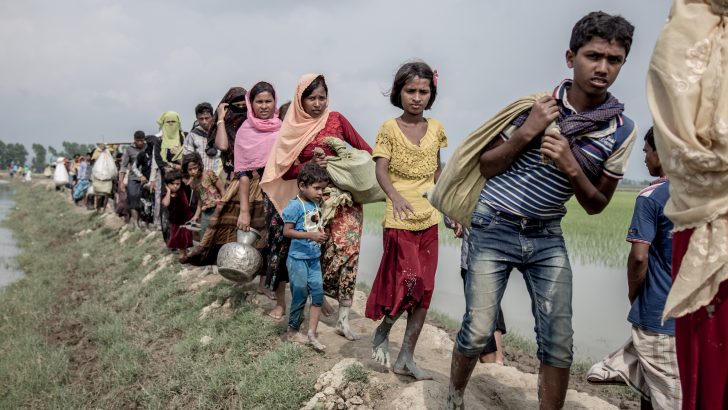Despite an agreement between the governments of Bangladesh and Myanmar it could be years before Rohingya refugees living in squalid camps can return home, the secretary-general of the world’s largest Catholic charity has warned.
Michael Roy of Caritas Internationalis said that it’s likely the Rohingya minority who fled Myanmar after a military crackdown will have to stay in refugee camps in Bangladesh much longer than originally thought.
While visiting Ireland for a meeting of the Global Catholic Climate Movement (GCCM) Mr Roy told The Irish Catholic: “The reality for those who fled Myanmar, even if there is an agreement between the governments of Bangladesh and Myanmar about their return, it’s going to take a lot of time.
“The first agreement was that after two months they would return, that is impossible because they cannot treat them to a no-man’s land, they have to go back to prepared areas.
“I think our vision is that these people should come back to their homeland with equal rights with other citizens and there should be a plan for that province,” he said.
The UN have accused the Myanmar government of ethnic cleansing following the army’s brutal military response in late August to an insurgent attack that targeted several police outposts in Rakhine State.
So far more than 688,000 refugees have fled Myanmar according to the United Nations Refugee Agency. The Rohingya people are not recognised by the Myanmar government as one of the country’s 135 national ethnicities, and therefore have been denied similar citizenship. Violence and repression increased against the group after a military coup d’état in 1962.
There is a strongly held belief among politicians and citizens that the mainly Muslim Rohingya are illegal Bangladeshi immigrants.
“The question will be who are Rohingyas and who are not, but the Rohingyas are natives of Myanmar and they have a right to citizenship which they have been deprived of for decades now,” said Mr Roy.
“I think our vision is that these people should come back to their homeland with equal rights with other citizens and there should be a plan for that province.”


 Chai Brady
Chai Brady
